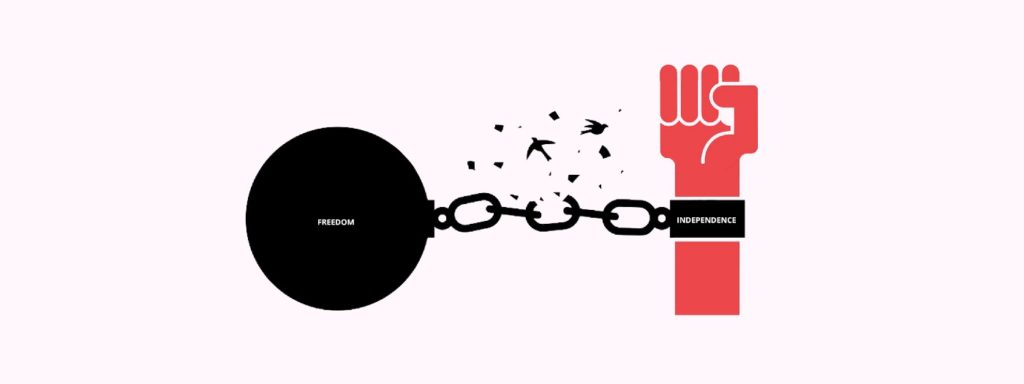
Independence is an illusion
Do you pride yourself on being (financially) independent? Gotcha!
Most of us are socialised to strive for independence. However, there is no such thing as (financial) independence.
Yeah, that’s right – we can’t escape dependence. Think about it. How likely are you to not starve to death if it wasn’t for supermarkets to provide food for you? How big is the chance you’d have survived all the medical challenges you have faced in your life without doctors and medication? Would you be able to have a roof on top of your head if it wasn’t for people who knew how to build that?
We live in such an individualistic society, where we have learned to be completely blind for the highly complex social structure that provides for our welfare. Because this has made it possible to lead a life where we hardly have to worry how to get our basic needs fulfilled – such as food, warmth and shelter – we have become so arrogant to think that we are independent of each other. Whereas, if anything, we are now more dependent on each other than ever.
The general connotation of (financial) independence seems to be focused on independence from parents, partners and to be able to have some savings on the side to buy a new washing machine if it breaks down. However, firstly, that “independence” still involves a dependence on the stability of and mutual belief in the value of money. And money, in turn, is a social construct that has no value intrinsically; only the value that our society assigns it to. Second, (for most of us) it still involves a dependence on having a job.
We are so focussed on becoming (financially) independent that we have become blind for the dependencies we have engaged in in the process.
How many people are out there to work their asses off for a job they don’t like? Getting burnt out, because we have enslaved ourselves to an exploiting system? How many people do you know accept mistreatment by their boss who is lacking leadership skills? 80% hate their jobs. Yet at the end of the day, they would claim that they are financially independent. Do you see the irony?
You *can* actually escape financial independence. You could for example move to a lonely island, escape civilisation, therefore escaping the social construct of money. Then however, you’d still be dependent. Dependent on your skills to find and prepare food and dependent on nature for providing that for you. Therefore, while you could escape financial dependence, you can never escape dependence.
But, here is what you can do: accept that independence is an illusion and own your dependencies. That way you *transcend* dependence. By rising above this illusion, we become conscious of the dependencies we have committed to. This enables us to make conscious choices about which dependencies we find valuable and which are unconstructive. Accepting the inescapability of dependence and making decisions on dependence in full awareness is what I mean with transcending dependence.
“You can’t escape dependence – you can transcend it.”
– Julia Heuritsch
Transcending dependence will bring us more inner peace, because we take back our power instead of remaining externally controlled by conceptions about what is and isn’t independence. Maybe it seems paradox at first, but by owning the dependencies we consciously choose for, we become the most independent and free person we can be.
Feeling miserable in that job? Maybe quitting and lending/ accepting some money from family/ friends/ partners or unemployment benefits is a better idea in the transition period to another job than staying in the miserable one, only to keep feeding the illusion of financial independence.
Of course, I am not arguing for enjoying Hotel Mama for as long as possible, because it’s more convenient than searching for a job. No, that is not what I am arguing for. I am, however, advocating for a check of the status quo of your dependencies – Are they worth it? Which ones are to keep and which ones are better to be exchanged by others?
Written by Julia Heuritsch | Last edited: 23rd August 2022